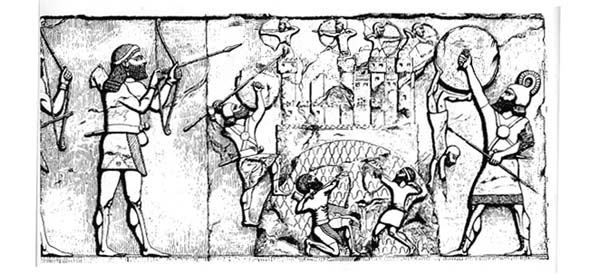Image Details

Assyrian archers mount an attack on Ekron, one of the cities in the Philistine Pentapolis, in this drawing of a wall relief from the palace of Sargon II, at Khorsabad (ancient Dur-Sharrukin). Sargon II, who ruled Assyria from 721 to 705 B.C.E., captured Ekron in 712 B.C.E., a decade after his predecessor, Shalmaneser V, conquered the city of Samaria—an event that marked the end of the northern kingdom of Israel.
Known for the brutality of their military campaigns, the Assyrians blazed a path of destruction through much of Palestine in the eighth century B.C.E. Many of the cities they conquered, however, the Assyrians later rebuilt. They also established an administrative presence in Palestine that is clearly reflected in the archaeological record.
By contrast, archaeologists have found almost no evidence of a Babylonian occupation of Palestine. Following their own conquest of the region in the late seventh and early sixth centuries B.C.E., the Babylonians left much of Palestine in ruins and made little effort either to rebuild or to oversee the cities they had destroyed.
